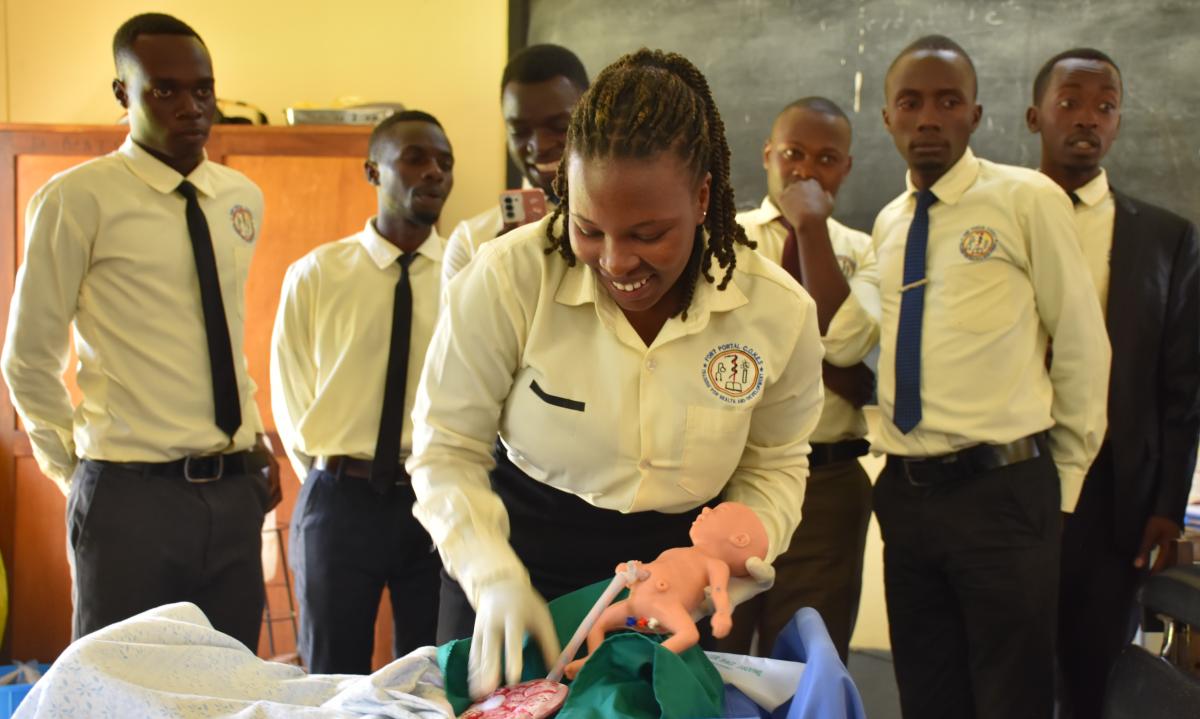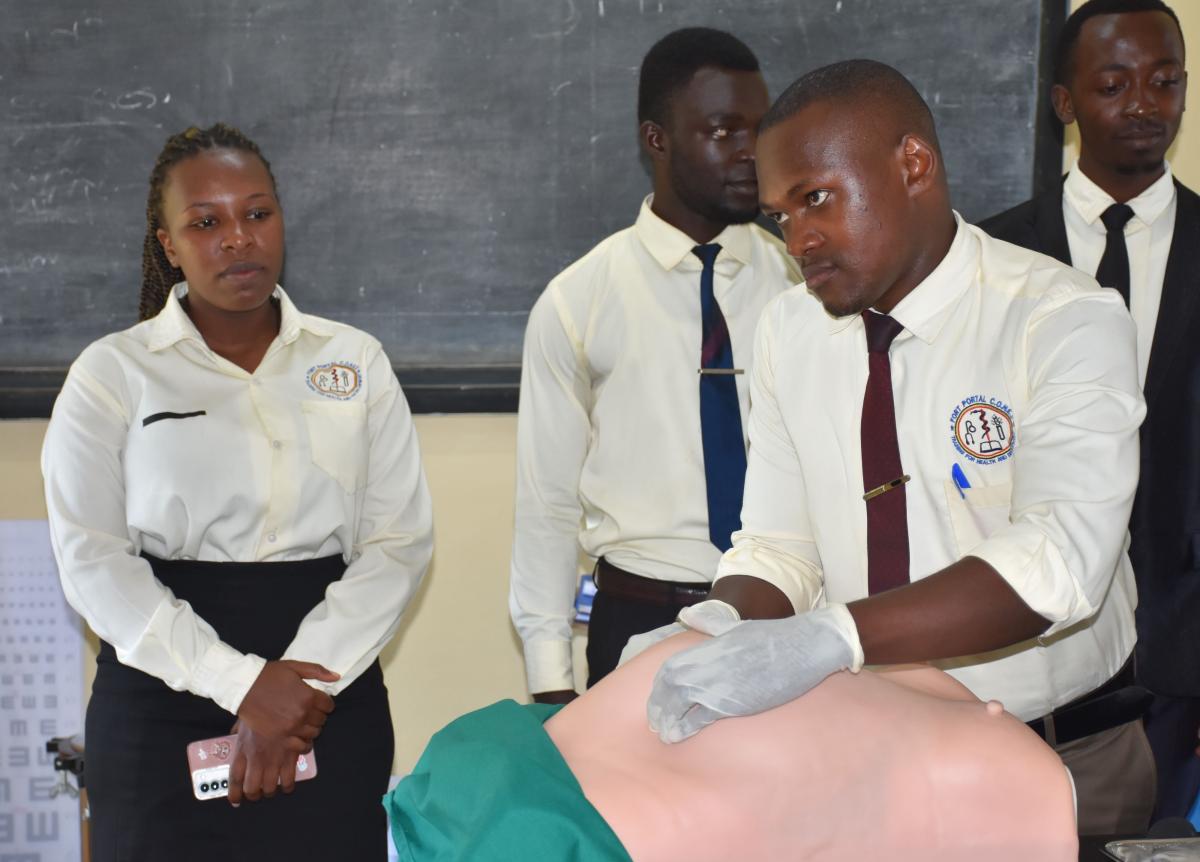Enabel strengthens Uganda’s health training with the SPICES Model.
When Kiisa Cynthia Shanitah, a third-year nursing student of clinical medicine and community health at Fort Portal college of health sciences, walks into her classroom these days, she knows she won’t be sitting quietly in the back, scribbling notes from a long lecture. Instead, she’s likely to be engaged with classmates, debating the best way to manage a patient’s symptoms, or out in the community, learning firsthand about the challenges her future patients face.
“It’s different from what I expected when I joined,” Kiisa says, her eyes lighting up. “We’re not just memorizing facts, lessons are systematic. We’re solving real problems, and I feel like I’m already making a difference.”
Ms. Kiisa, is one of hundreds of students whose education has been transformed by the SPICES model-an innovative approach that’s sweeping through health training institutions. SPICES stands for “Student-centred, Problem-based, Integrated, Community-based, and Elective-driven and Systematic.” It’s a mouthful, but for students and teachers alike, it’s become a recipe for deeper learning and greater impact. The model enables the development of health professionals who are lifelong learners, can relate theory to real world challenges, work together to solve them and serve the needs of the community with compassion, courage and humility
For years, health education just like any other, followed a familiar script: teachers lectured, students listened, and exams measured how much information had been absorbed. But as the demands on healthcare professionals have grown, so too has the need for a new approach. The WeTrain4Health project is working to ensure that we have both the numbers but also the quality of health workers we need to better promote equitable access to health care for all and improve maternal and child health statistics in Uganda. Ms. Namitego Juliet, a health tutor at Hoima school of nursing and midwifery noted that tutoring was no longer about the teachers because students are actively involved and stimulated to think critically.
“When I started teaching, I realized my students needed more than just knowledge—they needed to know how to think, how to work together, and how to adapt. The SPICE model has come in handy. Now, I’m more of a facilitator than a tutor,” she says, adding that she guides discussions, poses questions and lets students find the answers.
Pearl Mugala, the National pedagogy expert at Enabel noted that effective health education goes beyond transferring knowledge. It is about empowering students to think critically, engage actively, and apply their skills compassionately in real-world settings.
“At Enabel, we are committed to strengthening pedagogical practices that prepare nursing and allied health students not just to pass exams, but to become confident, competent healthcare professionals who can transform communities across Uganda."
As the SPICES model takes root, its impact is spreading, faculty are sharing best practices, and students are taking the lead in community projects. The hope is that this new generation of health professionals will be better prepared not just to treat illness, but to promote health and well-being in their communities.
For Omach Harriet, a Health tutor at Jinja school of nursing and midwifery, “The SPICE model has given us a new way to teach, and a new way to learn. It’s exciting to be part of something that’s making a real difference. The model has helped me, and my colleagues manage the big numbers more easily.”
Kabeera Peter a student at Fort portal college of health sciences sums it up: “We’re not just learning for exams. We’re learning for life, and for the people we’ll serve.”
Latest news from this project
No news


